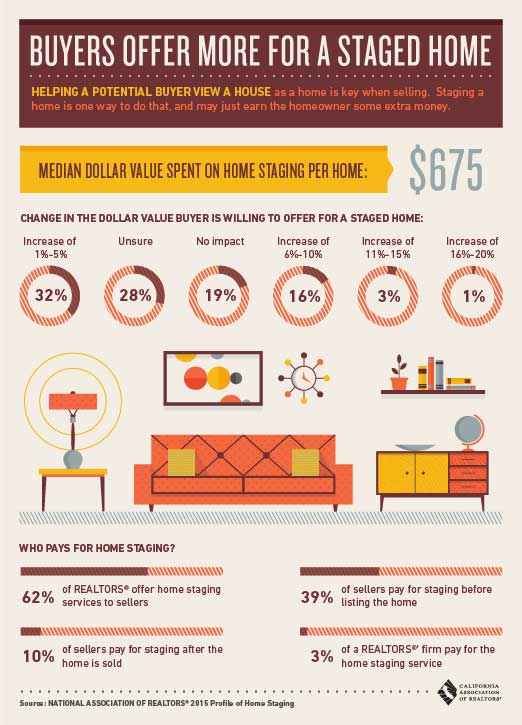After researching the sale prices of his neighbors recent home sales, Steve Rennie thought he knew exactly what his Kansas City, MO, house was worth. But when the Rennies decided to sell and started interviewing real estate professionals, they discovered they needed more and more relevant information. While the sale price of homes on your street can provide important insight into the price of a home you’re selling or buying, here are some of the other factors you should consider to make your best deal.
Unique or unusual home? Comparable sales may not exist
The Rennies quickly realized that recent sales near them wouldn’t be the perfect way to gauge their home’s value. We had interviewed several agents, and most came back with prices for homes that were not truly comparable to ours, because we had a unique older home in an area of newer ones, recalls Rennie. Eventually, the couple called real estate agent Dan Vick, vice president of RE/MAX Results in Kansas City, who offered a different perspective.
Since I didn’t have comps in their exact neighborhood, I went a half-mile away to find homes of similar age and style, says Vick. They’d said they wouldn’t list their home for one penny under $180,000, but based on my comps, I asked: Would you mind if I listed it for more? The house sold the first day it was on the market for $189,500. The Rennies were thrilled.
While comps give sellers a point of reference and an understanding of how strong the real estate market is, Vick suggests calling a professional familiar with your neighborhood to interpret comps properly and gauge what your home is worth. In newer subdivisions, especially if one or two builders have built the majority of the homes there, you can look at similar floor plans. But in older areas, that rule doesn’t apply, because you don’t have the same house four doors down the street.
Stick to the facts and expert advice when pricing a home
Even when you’ve studied comps and have noted relevant details about recent nearby home sales, it’s often easy for sellers to overlook important information when setting a price, says Michael Kelczewski, a real estate agent with Sotheby’s International Realty in Centerville, DE. I continuously encounter sellers who value their home above fair market price, he says. Cosmetically upgrading a kitchen or bathroom won’t usually generate a 100% ROI, so I’m tactful when explaining the reality of property valuations or asset depreciation.
Pricing your property appropriately, regardless of what your neighbor sold for, is key in today’s market, adds Matt Laricy, managing partner with Americorp Real Estate in Chicago, IL. A couple of years back, people would price a home high, get lowball offers, and be willing to negotiate, he says. Nowadays, with low inventory, many sellers are too aggressive: Their neighbor’s house sold in one day, so they think, I’ll overprice my place because I know I’m the only one on the block. But buyers are smart; they may not even look at it until the price comes down.
Bottom line? Don’t be greedy, Laricy says. If you price your home realistically, you’ll likely get more than one offer and net more money in the long run.
Understanding how agents set prices can help buyers score the perfect home
Buyers can benefit tremendously from checking what homes in their chosen neighborhood have sold for, says Laricy. In Chicago, we don’t do price per square foot, so knowing what a neighbors house sells for is huge, he says. If it sold really low, that’s good news for you as a buyer.
However, buyers sometimes overlook other crucial details in their quest to zero in on the best price, he adds. That can lead to a harder sale or lower profit in the future. In big markets like New York, Chicago, Miami, and LA, where people are coming and going all the time, you’re buying an investment, he explains. Buyers usually don’t think about value: why certain buildings trade at different rates now, which ones will trade higher than others in the future, and which neighborhoods are worth more. These are things you need an expert eye for.
He notes that younger buyers tend to neglect that all-important real estate factor: location. They chase kitchens and bathrooms, he says. They’ll buy in a less desirable location to get a nicer kitchen. You can always change a kitchen, but you can’t pick up a property and move it.
Yet even as buyers and their agents leverage comps to make a good buy, sometimes the heart wants what it wants, says Vick. I think you can get too caught up in the comparable data. If your buyers have looked at 15 homes, and this is the one they’ve fallen in love with, it really doesn’t matter what the comps are; you’d better go after it with a strong offer, he suggests. A note of caution to buyers: be careful not to overestimate a home’s appraisal value, since an offer that’s much higher than appraisal value could put your purchase at risk.
Buyers should bring their best offers from the start!
Especially in red-hot real estate markets, Laricy advises buyers to bid smart the first time or risk losing out to another buyer. Usually, buyers who lowball are the ones who end up missing out on two or three properties before actually getting something, says Laricy. Be realistic by putting in a strong offer upfront.
First-time homebuyer Corinne Hangacsi followed that advice before purchasing her two-bedroom townhouse in Wilmington, DE, this spring. We did our research through Trulia. Our real estate agent definitely clued us in to what was happening in the area, but we also looked at other comparable properties ourselves, she says. That in-person research helped Hangacsi feel comfortable making a strong initial offer. My biggest piece of advice for first-time homebuyers is to be patient and do your homework. Go with your gut; when you find the right place, you’ll know.
Source: Trulia Blog

 Facebook
Facebook
 Twitter
Twitter
 Pinterest
Pinterest
 Copy Link
Copy Link























